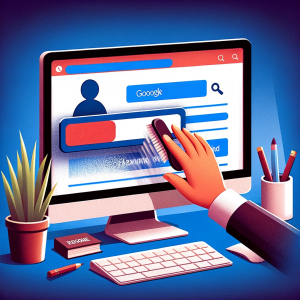Should You Use a Different DOB Online?
In today’s internet landscape, where “why is my personal information online” is a common query, protecting your data is more crucial than ever. With incidents like your information appearing on Whitepages or other public records becoming increasingly common, many are considering using a different date of birth (DOB) when signing up for online services as a shield against identity theft and unwanted online presence.
Data Breaches: A Growing Concern
The rise of data breaches has made safeguarding personal information a top priority. From social media platforms to online retailers, companies are constantly facing cyberattacks that expose user data. A recent study by the Pew Research Center found that 60% of Americans have had their personal information exposed in a data breach. This data can include names, addresses, phone numbers, email addresses, Social Security numbers, and even financial information.
The Temptation of Fake DOBs
With the growing threat of data breaches, it’s understandable why some people might consider using a fake DOB online. This practice might seem like a quick and easy way to protect your privacy and avoid identity theft. Additionally, some people might be tempted to use fake DOBs to take advantage of age-restricted content or discounts.
However, there are several risks associated with using a fake DOB online:
- Difficulty managing multiple DOBs: Keeping track of multiple fake DOBs can be challenging, especially when you need to access different accounts. You might forget which DOB you used for a particular service, leading to locked accounts and frustration.
- Inconsistent data: Using different DOBs for different accounts can make it difficult to remove your information from the internet. For example, if your name is associated with multiple DOBs, it can be challenging to request removal from Whitepages or other public records.
- Legal and ethical concerns: In some cases, using a fake DOB online can be illegal. Additionally, it’s important to consider the ethical implications of this practice. Lying about your age can be harmful, especially when it comes to accessing age-restricted content or services.
Wiperts.com: A Comprehensive Solution
Instead of resorting to fake DOBs, there are safer and more effective ways to protect your online privacy. Services like Wiperts.com offer a range of solutions to help you remove your personal information from the internet. They can help you:

Identifying and mitigating potential privacy risks by monitoring online information.
- Remove your information from search engines: Wiperts.com can remove your name, address, phone number, and other personal information from Google and other search engines. This makes it more difficult for people to find your information online.
- Request removal from public records: Wiperts.com can help you request removal of your information from Whitepages and other public records databases. This can help to prevent your information from being used by scammers or other malicious actors.
- Monitor your online presence: Wiperts.com offers a web identity search tool that allows you to monitor your online presence and see where your information appears. This can help you identify any potential risks and take steps to protect your privacy.
Making Informed Choices in the Digital Wild West:
Ultimately, the decision of whether or not to use a fake DOB online is a personal one. However, before making that choice, it’s crucial to weigh the risks against the supposed benefits. Fake DOBs offer a precarious shield, riddled with holes and ethical concerns. Instead, consider the safer and more effective solutions offered by services like Wiperts.com.
Remember, protecting your online privacy is not a one-time fix, but an ongoing journey. By taking proactive steps like using strong passwords, being cautious about what you share online, and utilizing reputable services like Wiperts.com, you can navigate the digital wild west with confidence and reclaim control of your online identity.
Additional Resources:
- Wiperts.com: https://www.wiperts.com/internet-privacy-protection-tips/
- Pew Research Center: https://www.pewresearch.org/internet/2017/01/26/americans-and-cybersecurity/






